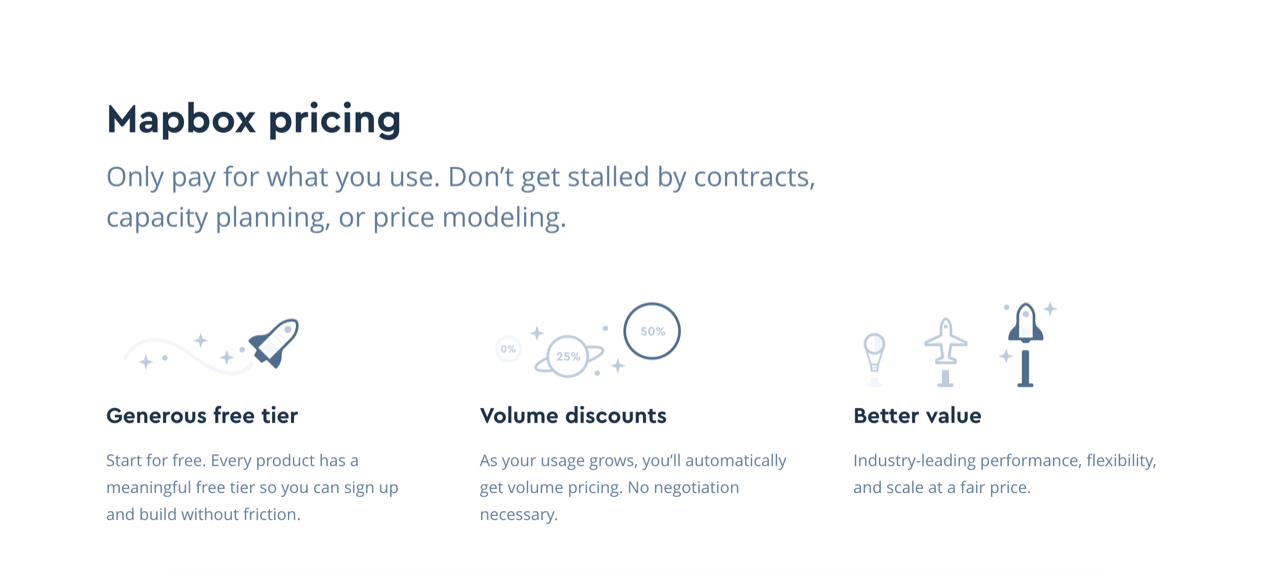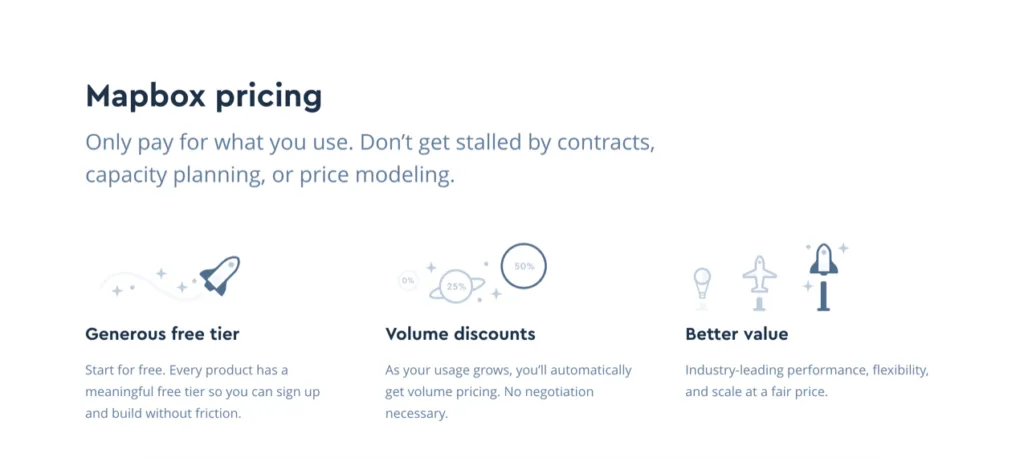Mapbox changes their pricing to pay-as-you-go for each API and SDK
For developers, choosing a mapping API could prove to be bigger of a headache than ever imagined. With unpredictable pricing, constant changes, and confusing billing, the wrong mapping API could certainly slow down the development process for many, and nobody wins. At Geoawesomeness, we know this as a fact because we have talked to many developers and our most popular blog, receiving thousands of views per month discusses alternatives to the Google Maps API!
Recently, Mapbox announced that their APIs and SDKs are now available to developers on pay-as-you-go basis. Most notably, they have increased their free tier for almost every product and publicly published pricing for all services, including showing volume discounts that automatically trigger as usage increases. We’ll talk about what it could mean for developers.
So what’s changing?
Increased free tier: Mapbox has upped their free tier for almost every product.
Pay-as-you-go: The pay-as-you-go pricing could mean that developers won’t have to worry about unnecessarily paying for what doesn’t get used.
Volume discounts: When an application reaches volume scale, it automatically gets volume pricing.
No commercial restrictions: Mapbox is phasing out differentiated pricing. It won’t matter which use case or industry you are using their products for.
Support from entry level: Support plans are no longer only for Enterprise customers, and there will be different tiers to choose from.
We’ve only broken down the majority of the changes. You can read more about them here.
What this means for developers
- Generous free tier to encourage building and make it easier to get started
- Predictable pricing
- Clearly defined discount tiers as businesses scale
We’re especially excited about for students and developers to have access to more features before they have to pay for usage. In general, it could mean that developers have to worry less about pricing because of changes such as automatic volume pricing.
However, these changes won’t go into effect until November 20, 2019. If you’re eligible for savings, you can opt-in to the new pricing today from your account dashboard.
If you are looking to develop web maps, this new pricing scheme will certainly be quite attactive. If you are already using Mapbox, how do you think the new changes are going to affect your organization?






